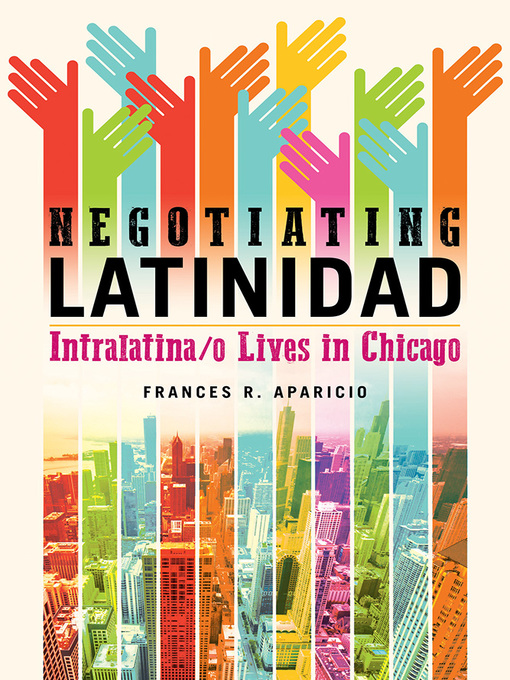1 of 1 copy available
1 of 1 copy available
"Aptly interweaving humanities and social science approaches to identity, Aparicio sets up some of the building blocks for what Latino Studies will become in the twenty-first century. Her compelling engagement with storytelling by Latinos articulating intraLatina/o identities in Chicago is a groundbreaking intervention in the study of U.S. Latinidad that transcends while honoring cultural nationalist models that may not always serve to capture our realities. Her use of the concepts 'horizontal hierarchies' and 'affective essentializing' to analyze co-existence, competition, love, conflict, and solidarity leaves us rethinking our lives in inter-Latino communities and how we describe them. While reading about linguistic battles between parents, grandmas seeking to win over their intraLatina/o children through food, and college students trying to find a sense of belonging to inter-Latino families, communities, and college settings, the reader witnesses intimate spaces of kinship building by intraLatina/os and is deeply engaged by the courageous truths of our communities."—Alaí Reyes-Santos, author of Our Caribbean Kin: Race and...
-
Creators
-
Series
-
Publisher
-
Release date
October 15, 2019 -
Formats
-
Kindle Book
-
OverDrive Read
- ISBN: 9780252051555
-
EPUB ebook
- ISBN: 9780252051555
- File size: 1010 KB
-
-
Languages
- English
Formats
- Kindle Book
- OverDrive Read
- EPUB ebook
subjects
Languages
- English
Loading
Why is availability limited?
×Availability can change throughout the month based on the library's budget. You can still place a hold on the title, and your hold will be automatically filled as soon as the title is available again.
The Kindle Book format for this title is not supported on:
×Read-along ebook
×The OverDrive Read format of this ebook has professional narration that plays while you read in your browser. Learn more here.
